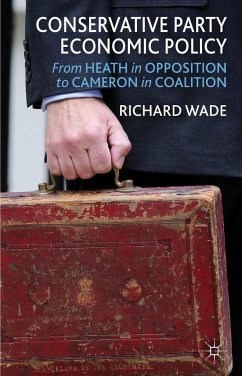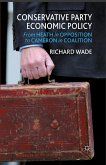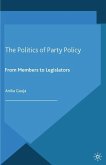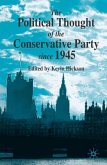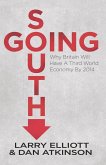Covering the period from Ted Heath's assumption of the leadership of the Conservative Party through to the early years of the Coalition, this volume provides a detailed analysis of the Tory Party's Macroeconomic and Microeconomic Policy-Making over the past 50 years providing an historical context for the political and economic events of today.
The book's strength lies in its meticulous examination of original documents in the Conservative Party and National Archives, in the extensive range of interviews with key players and in its demonstration that policy-making has implicitly drawn on the twin strands of Tory paternalism and Whig liberalism.
Sir Douglas Wass, Former Permanent Secretary to HM Treasury.
Richard Wade has produced a definitive study of economic policy-making in the Conservative party from Edward Heath' premiership to the fall of John Major's government in 1997. The analysis provides a comprehensive analysis of what happened in the years when Mrs Thatcher was in Downing Street and lucidly explains why it happened. This was a period of dramatic change which shaped subsequent economic policy, making the book is a 'must read' for anyone trying to understand the origins of contemporary economic policy.
Paul Whiteley, Department of Government, University of Essex, UK.
Sir Douglas Wass, Former Permanent Secretary to HM Treasury.
Richard Wade has produced a definitive study of economic policy-making in the Conservative party from Edward Heath' premiership to the fall of John Major's government in 1997. The analysis provides a comprehensive analysis of what happened in the years when Mrs Thatcher was in Downing Street and lucidly explains why it happened. This was a period of dramatic change which shaped subsequent economic policy, making the book is a 'must read' for anyone trying to understand the origins of contemporary economic policy.
Paul Whiteley, Department of Government, University of Essex, UK.

